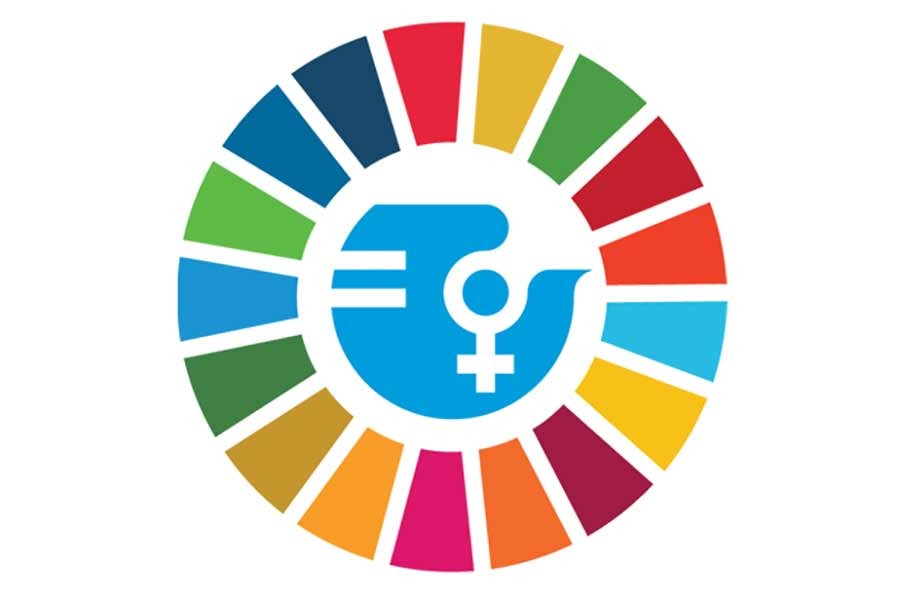Throughout the Covid-19 pandemic, women have been driven out of the labour force and the global crisis exposed an unmet need for affordable and quality childcare to keep women in the labour force, writes Natália Mazoni Silva Martins
The last time governments around the world gathered to put women's rights front and centre was in 1995, during the Fourth World Conference on Women, convened by the United Nations in Beijing, China. On this occasion, governments from 189 countries agreed to an overarching plan to achieve global legal equality in the coming decades.
1995 seems like a lifetime ago - and, in fact, it is. In the past 25 years an entire generation has been formed. This generation, dubbed Generation Equality, in the words of the UN Women Executive Director, Phumzile Mlambo-Ngcuka, is tasked with delivering gender equality as envisioned in the ground-breaking Beijing Platform for Action.
This year's Generation Equality Forum, co-hosted by the governments of Mexico and France, aims to catalyze global actions on gender equality and bring women's rights and empowerment to the forefront of the global debate. After a quarter century, the Forum will bring together governments, key players in the private sector, and change-makers from around the world to reinforce the commitments made under the Beijing Platform for Action, and collectively think about the new concrete, ambitious and transformative actions and commitments that countries can make to accelerate gender equality.
The need to strengthen laws that guarantee women's rights and equality of opportunity is more urgent now than ever. Throughout the Covid-19 pandemic, women have been driven out of the labour force and the global crisis exposed an unmet need for affordable and quality childcare to keep women in the labour force. However, solving such challenges requires a concerted effort by governments, civil society, private sector, and international organisations.
Women, Business and the Law has partnered with the IFC and the United Nations Foundation to host the high-level panel discussion "Providing Childcare in the COVID-19 Era: A Call for Data-driven Action to Support Working Women" during the Generation Equality Forum on Thursday, July 1, 10:00-10:45 EST. The session will discuss how to rebuild women's economic participation after the Covid-19 setbacks by focusing on the need for effective data-driven policies and private sector actions aimed at providing affordable, quality childcare to working parents around the world.
In its latest report, Women, Business and the Law found that nearly 40 countries have introduced leave or benefit policies to help parents balance their jobs with their ever-growing childcare responsibilities during the Covid-19 pandemic. Caren Grown, Global Gender Director at the World Bank Group, will share insights from Women, Business and the Law data and the commitments made by the World Bank Group in terms of investments in quality, affordable childcare. Henriette Kolb, Head of the IFC's Gender and Economic Inclusion Group, will discuss the role of the private sector in supporting employees and communities in times of crises, drawing lessons from the reports Tackling Childcare Pakistan: Creating Family-Friendly Workplaces and Childcare in the COVID-19 Era: A Guide for Employers. Ultimately, Wendy Lobo, Business Development Manager at Ubuntu Care, a private childcare provider in Pakistan, will offer concrete examples of innovative childcare services provided in support of working parents during the pandemic. Michelle Milford Morse, Vice President for Girls and Women Strategy at the UN Foundation, will moderate the session and will promote a lively and interactive discussion aimed at inspiring generations to come.
A feminist response to the Covid-19 crisis requires synergies, multi-stakeholder partnerships, innovation, and most important of all: reliable data. The World Bank's Women, Business and the Law is committed to producing data and analysis that can help drive a resilient post-pandemic recovery through evidence-based policy discussions around women's economic opportunities. Ahead of the Generation Equality Forum, read our latest blog on the importance of expanding access to affordable, quality childcare to boost female labour force participation.
Interested people can register the online Generation Equality Forum until Sunday, June 27. Registration is free and gives the access to all meetings, speeches, and events featuring global leaders and activists.
The writer is Analyst, Development Economics Global Indicators Group, World Bank. The piece is excerpted from
The World Bank Blogs (www.blogs.worldbank.org)


